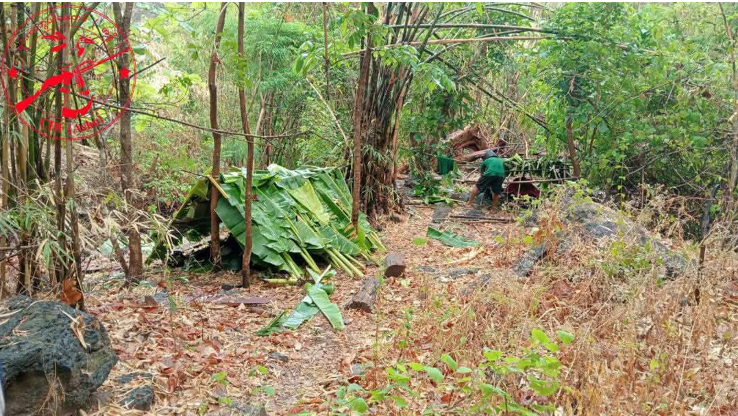With the onset of the rainy season, malaria and seasonal flu have begun spreading in the area controlled by the Chinland Defense Force (CDF-Asho), infecting nearly 100 local residents—including resistance fighters—over the past two months.
The CDF-Asho has requested medical assistance as cases of seasonal flu and malaria continue to rise — affecting not only its soldiers but also civilians in the areas under its control.
Salai Rochin, an official from CDF-Asho, said: “Malaria is mainly affecting the soldiers on the front lines. Once they’re infected, they are sent back to the camps, and the disease has since spread from the soldiers to the displaced people.”
“We can’t protect ourselves from mosquitoes while in the forest. Civilian infections were rare, possibly because we didn’t conduct proper health checks. This year, we’re carrying out thorough screenings. In some cases, soldiers have been infected twice in a year — or even two to three times in a single month,” he said.
In May, over 20 CDF-Asho soldiers and around 10 local residents were diagnosed with malaria, with most cases occurring among the soldiers. The infections include an 8-year-old girl, and some patients have even experienced cerebral malaria.
Since malaria medicine is not readily available, treatment is being provided through various methods. Although care is offered via one stationary clinic and one mobile clinic, their capacity to treat patients remains insufficient.
“We cannot fully provide medical treatment. We ourselves cannot cover all the areas. The availability of medicine is difficult. We also find it difficult to carry and buy medicines. We cannot store a lot of medicine due to the fund difficulties. We face such challenges,” Salai Rochin added.
In 2024, the CDF-Asho camp reported only about 10 malaria cases, but so far in the early monsoon season of 2025, the number has risen to over 20 soldiers.
The CDF-Asho is urging people both inside and outside the country to contribute support, as medical treatment is being provided not only to resistance fighters but also to children, the elderly, and pregnant women. Consequently, there is a pressing need for medicines for children and expectant mothers, along with contraceptives and other medical supplies for the local population.


